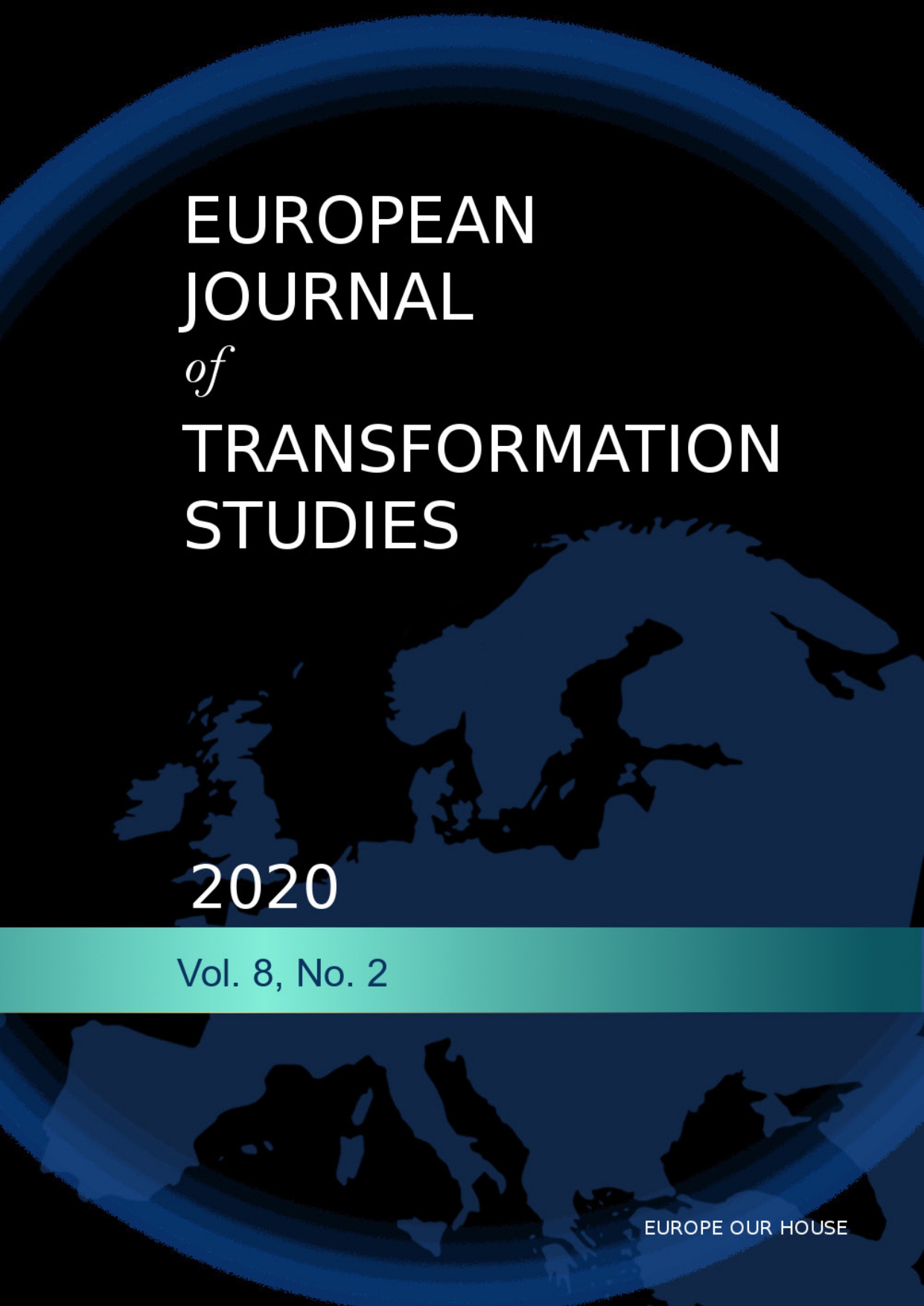Trade Elasticities in the Slovak Republic
Słowa kluczowe:
income elasticity, price elasticity, exports, imports, international tradeAbstrakt
Slovakia as the small and very open economy with relatively limited scope of domestic market, insufficient raw materials and low agricultural potential is predestined for a further development of international trade and relations. One of the most important issues in open economies is to determine the effects of income and relative prices on the international trade. The purpose of this paper is the estimation of the price and income elasticities of the international trade in the case of the Slovak Republic. We use panel data regression for the Slovak economy in the period 1995–2018 for estimation import and export demand functions. Furthermore, these elasticities are re-estimated for different sub-periods in order to verify whether they are stable over time or they are changing with respect on the type of the exchange rate mechanism and adopting the euro by the Slovak Republic. We suppose that the income export elasticity will be high and the price elasticities will be low due to the participation of the Slovak Republic in the Eurozone and the high share of the EMU countries in the Slovak trade.
Downloads
Bibliografia
Baiardi et al., (2014), The price and income elasticities of the top clothing exporters: Evidence from a panel data analysis, Department of Economics and Management, DEM Working Paper Series, No. 74, pp. 3-14.
Benáček, V., Podpiera, J., and Prokop, L., (2005), Determining Factors of Czech Foreign Trade: A Cross Section Time Series Perspective, in Working Paper Series, 3, Czech National Bank. [online] Available at: [Accessed 15 March 2020].
Benáček, V., Prokop, L. and Víšek, J.Á., (2003), Determining Factors of the Czech Foreign Trade Balance: Structural Issues in Trade Creation, in Working Paper Series, 3, Czech National Bank. [online] Available at: < http://www.cnb.cz/en/research/research_publications/cnb_wp/download/wp3-2003.pdf> [Accessed 15 March 2020].G
oldstein, M. and Khan, M., (1985), Income and Price Effects in Foreign Trade, in R.W. Jones and P. Kenen ed. 1985, Handbook of International Economics, vol. 2, Elsevier, pp. 1041 – 1105.
Houthakker, H. S. and Magee, S. P., (1969), Income and Price Elasticities in World Trade, in The Review of Economics and Statistics, 51(2), pp. 111 – 125.
Jones, R. and Kenen, P., (1985), Handbook of International Economics, vol 2. North-Holland, Amsterdam: Elsevier.
Mervar, A., (2003), Determinante vanjskotrgovinskih tokova RH – Ekonometrijski pristup. Ekonomski institut, Zagreb.
Kadievska-Vojnovic, M. and Unevska, D., (2007), Price and Income Elasticities of Export and Import and the Economic Growth in the Republic of Macedonia. National Bank of the Republic of Macedonia. [online] Available at: public_of_macedonia.nspx> [Accessed 15 March 2020].
Prais, S. J., (1962), Econometric Research in International Trade: A Review, Kyklos, 15, pp. 560–579. [online] Available at: [Accessed 15 March 2020].
Senhadji, A. and Montenegro, C. E., (1998), Time Series Analysis of Export Demand Equations: A Cross-Country Analysis, in IMF Working Paper, No. 98/149. [online] Available at: [Accessed 16 March 2020].
Stern, R. M., Francis, J., and Schumacher, B., (1976), Price Elasticities in International Trade. London: Macmillan Press.
Taplin, G. B., (1973), A Model of World Trade, in R. J. Ball, ed. (1973) The International Linkage of National Economics Models, Amsterdam: North-Holland.
Tomšík, V., (2000), Analysis of Foreign Trade in the Czech Republic, in Eastern European Economics, 38(6), pp. 43 – 68.
Vagac, L., Palenik, V., Kvetan, V. and Krivanska, A., (2001), Sectoral Analysis of the Slovak Foreign Trade, in Phare ACE Research Project: Enlarging the EU: The Trade Balance Effects. [online] Available at: [Accessed 15 March 2020].

 Uniwersyteckie Czasopisma Naukowe
Uniwersyteckie Czasopisma Naukowe



